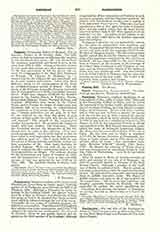

Passionei, DOMENICO, cardinal, theologian, b. at Fossombrone, December 2, 1682; d. July 5, 1761. Educated in the Clementine College at Rome, later he joined the household of his brother Guido, afterwards secretary of the Sacred College, devoting himself to higher studies at the Sapienza. He was soon made a prelate and in 1706 was sent to Paris to present the nuncio with the red hat, but he there acquired the Jansenistic tendencies which he never entirely eradicated. In 1708 he was sent on a confidential mission to The Hague; in 1712 he was present at Utrecht as official representative of the Holy See and successfully maintained the cause of Ruiswych concerning religion. His efforts were less successful at Baden (1714) and at Turin. He was later sent to Malta as inquisitor (1717-19); he became Secretary of Propaganda, Secretary of Latin Letters, and in 1721 nuncio in Switzerland, where he wrote “Acta Apostolicae Legationis Helvetiae 1723-29” (Zurich, 1729; Rome, 1738). He blessed the marriage of Maria Theresa and was. instrumental in converting Friedrich Ludwig, Prince of Würtemberg. Later on he was hostile to Austria. After his return to Rome he became secretary of briefs and cardinal of the title of S. Bernardo. In 1755 he succeeded Quirini as librarian of the Holy Roman Church. Although a member of the Academy of Berlin, he published little. But he carried on a learned correspondence with the most distinguished literati. He protected the Jansenists and encouraged them to publish Arnauld‘s works. His library of 32,000 volumes was open to all; it was acquired by the Augustinians. His character was impetuous and haughty, especially towards the Romans. He was compelled to confirm the decree prohibiting the “Exposition de la doctrine chrétienne” of Masenguy, his protége, but this so afflicted him as to hasten his death.
U. BENIGNI

